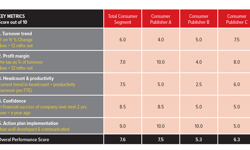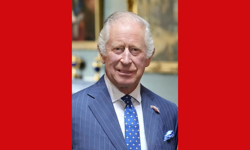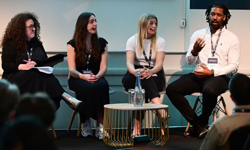MagAid is the first national literacy project to use magazines to promote literacy. It has been established by the Professional Publishers Association (PPA), which represents the UK’s magazine publishing industry, in partnership with the National Literacy Trust.
Funding raised through MagAid will be channelled into the National Literacy Trust’s Young Readers Programme, which is designed to promote reading among children from areas of disadvantage. The scheme engages children in reading at school, giving them the opportunity to select and keep reading materials they can then read at home.
Through MagAid, the scheme has been expanded to include magazines for the first time, and the PPA will encourage donations and co-ordinate funding for MagAid on behalf of the consumer and business media publishers within its membership.
Literacy is a significant yet relatively hidden problem in the UK. It is estimated that one in six people in the UK currently has a literacy level below that expected of an 11-year-old, and the country has recently slipped to joint 23rd in the international literacy rankings.
National Literacy Trust research involving 18,000 children and young people suggests that magazines are a powerful medium for encouraging reading for pleasure among children who label themselves as non-readers.
Barry McIlheney, CEO of the PPA, said: “Literacy is a fundamental life skill that many of us take for granted, but without it these children will develop into young adults who will struggle in the modern world. Through MagAid, our industry can play its part in tackling this problem, improving life chances, and encouraging an enjoyment in reading.”
The National Literacy Trust has recently completed a MagAid-funded Young Readers Programme at the City of London Academy in Southwark. The programme was the first phase of a pilot project designed to investigate the introduction of magazines into the portfolio of reading materials available to the children.
Richard Bannister, Principal of City of London Academy (Southwark), said: “The MagAid-funded National Literacy Trust programme has had a tremendous impact in promoting literacy across Year 7 in our Academy. It actively encourages our students to engage in reading. Using magazines as a medium to promote literacy in our Academy has been really well received by students and staff.”
Caroline Sence, who manages the Young Readers Programme for the National Literacy Trust, said: “This is the first time magazines have been used to address the literacy challenge by a national literacy project. We believe magazines are a powerful tool for engaging reluctant readers: by giving children and young people the opportunity to choose and keep new magazines and books that are linked to their own interests, we are helping to make reading relevant to them, and to encourage reading as an activity of choice outside of school.”
Clive Foskett, Founder of MagAid and Chief Executive of Signature Publishing, said: “Poor literacy skills disadvantage millions of people in many aspects of their life, let alone in being unable to access and enjoy the information produced by magazine publishers.
“The first school project is already demonstrating that through MagAid we can make a real difference on this major issue.”
About PPA
The PPA says: “The PPA promotes and protects the interests of print and online publishers of consumer and business media in the UK. The PPA has around 200 publishing companies in its membership, which collectively produce more than 2,500 consumer and business magazines and journals as well as digital media, data products and events.”
About the National Literacy Trust
The National Literacy Trust says: “The National Literacy Trust is an independent charity that transforms lives through literacy. We believe that society will only be fair when everyone has the literacy skills they need to communicate, to fulfil their potential and to contribute more to society. We campaign to improve public understanding of the vital importance of literacy, as well as delivering projects and working in partnership to reach those most in need of support.”










